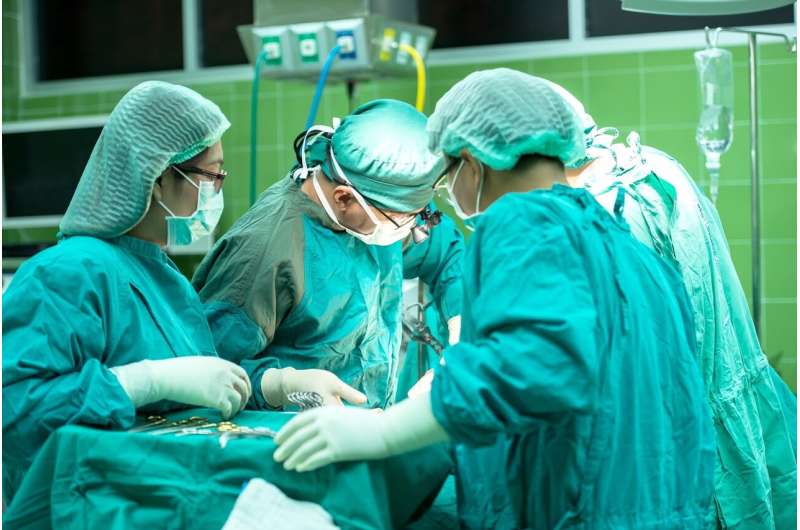Surgical delay associated with increased risk in some gastrointestinal malignancies

Early in the COVID-19 pandemic, widespread cancelations of electively-scheduled or 'non-emergency' operations were implemented to free up hospital beds and conserve protective equipment for health care workers. For some conditions, including cancer, timely surgery is critical for patients' survival. In a new study published in the Journal of Gastrointestinal Surgery, a team of investigators at Beth Israel Deaconess Medical Center (BIDMC) examined the effects of delaying surgery for gastrointestinal cancers.
The analysis examined the results of peer-reviewed studies published between 2005 and 2020 that investigated how surgical delays affect patients with colorectal, pancreatic or gastric cancer. "When we started this research, little knowledge existed about how long we could safely delay surgery for these cancers or how to prioritize which operations should occur first," said first author Scott C. Fligor, MD, a General Surgery resident at BIDMC. "In the context of the coronavirus pandemic, we were concerned that both surgeons and patients were forced to make decisions without a clear understanding of the risks of surgical delay."
Fligor and his colleagues identified 43 relevant studies related to colorectal cancer. A surgical delay of 30 to 40 days was associated with shorter survival times in patients with colon cancer, as was a delay of seven to eight weeks after chemotherapy and/or radiation therapy in patients with rectal cancer. For pancreatic cancer, nine studies were identified, and two studies found that cancer progression increased in patients who experienced surgical delays over 30 days. Six studies were included for gastric cancer, and none of the studies found worse patient survival with increased time to surgery.
"Surgical delay is associated with increased risk in some gastrointestinal malignancies," said Fligor. "While every effort should be made to avoid surgical delay, the COVID-19 pandemic may make such delays unavoidable."
Fligor stressed that delaying surgery does not necessarily mean delaying treatment. "Providers should consider whether alternative therapies can help to minimize the risk of delay, such as extending a course of chemotherapy before surgery or initiating chemotherapy when surgery would normally occur first," he said. "It is critical for patients to work with their health care team to create a safe plan for treatment during the pandemic. The right decision for each patient depends on several factors, including the type of cancer, treatments available, and the local burden of COVID-19."
More information: Scott C. Fligor et al. Gastrointestinal Malignancies and the COVID-19 Pandemic: Evidence-Based Triage to Surgery, Journal of Gastrointestinal Surgery (2020). DOI: 10.1007/s11605-020-04712-5



















